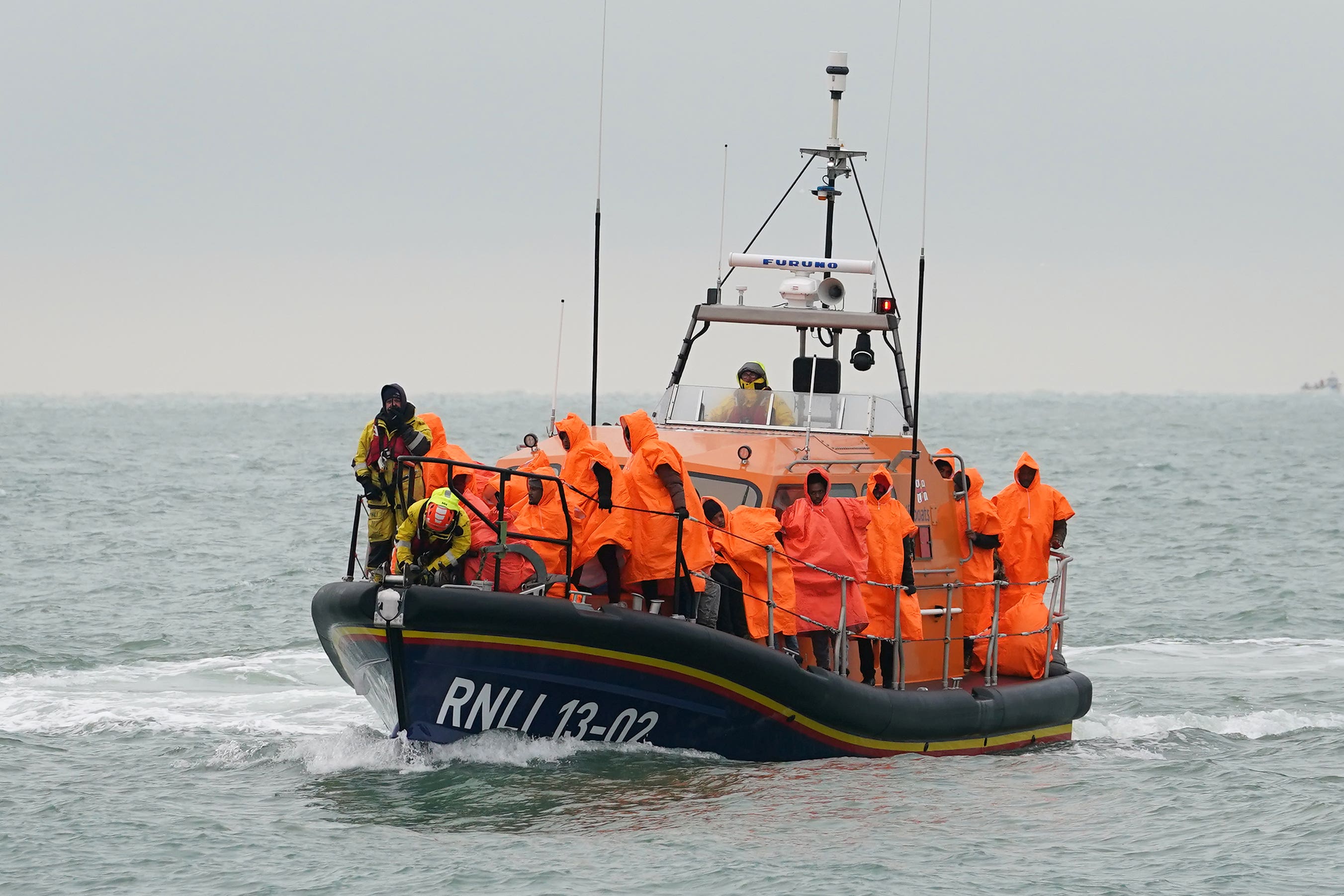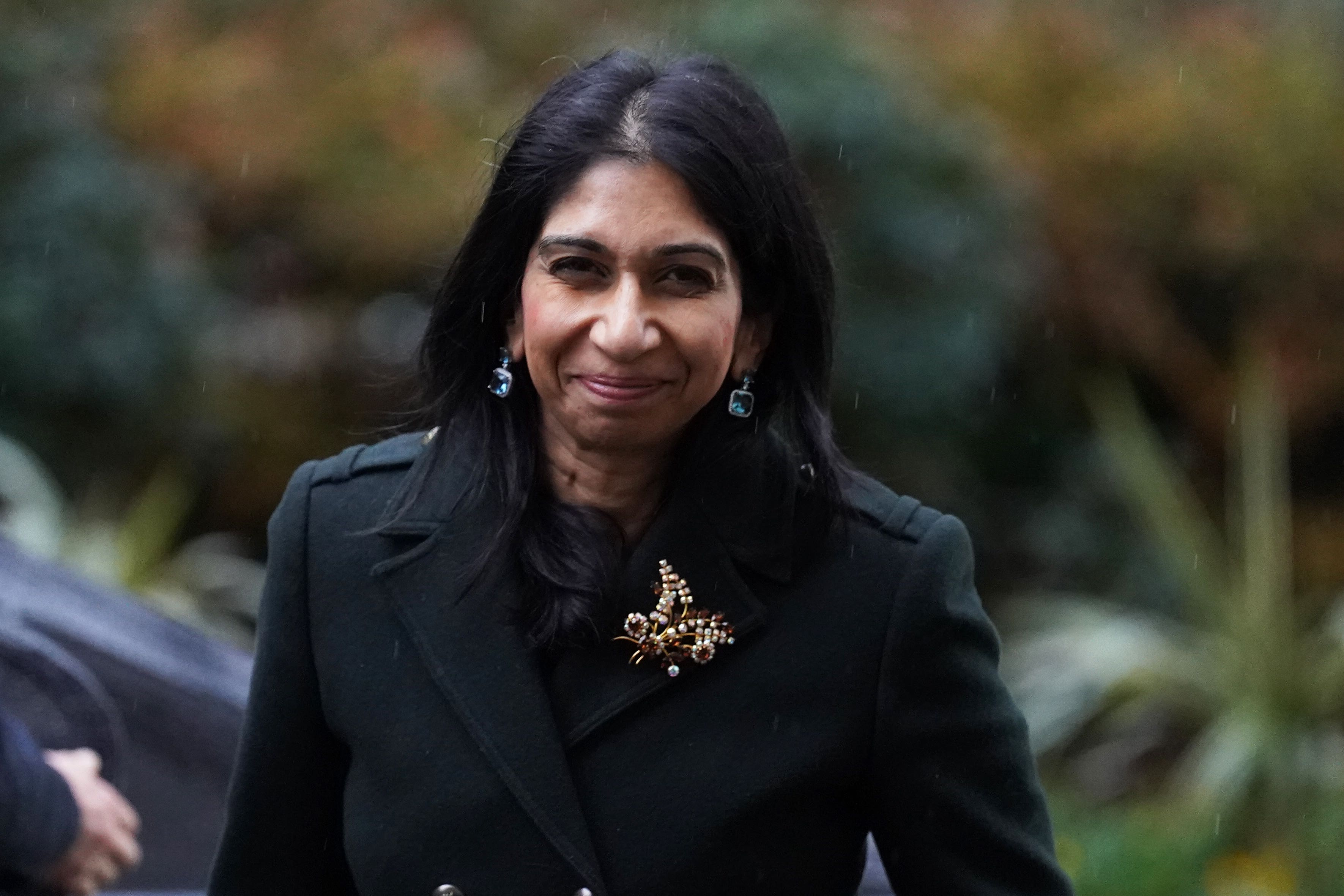Laws making it harder for slavery victims to gain support come into force as government avoids scrutiny
Independent Anti-Slavery Commissioner post left vacant after watchdog vocally opposed changes that ‘harm genuine trafficking victims’

New laws making it more difficult for victims of slavery and human trafficking to gain support have come into force as the government continues to avoid official scrutiny.
There has been no modern slavery watchdog in post since last April, and no recruitment has taken place since Suella Braverman scrapped a previous appointment process over a month ago.
The former Independent Anti-Slavery Commissioner had vocally opposed measures that came into effect on Monday, warning that the “plans will make the identification of victims of modern slavery harder and create additional vulnerabilities”.
In an official report, Dame Sara Thornton said legal changes under the Nationality and Borders Act had been “driven by the government’s concerns regarding increasing numbers of arrivals by small boats”, but there was no evidence supporting its allegations that migrants were widely abusing modern slavery protections.
In a letter to former home secretary Priti Patel in September 2021, she wrote: “Not only is there significant potential to further harm genuine trafficking victims, but there is a significant risk that the measures will not work to deter illegal entry into the UK as envisaged.”
Channel crossings have subsequently rocketed, but the government proceeded with the legal changes opposed by Dame Sara and failed to replace her after her three-year term ended last year.
On Monday, the Home Office hailed the enactment of powers to restrict access to the National Referral Mechanism, which allows potential modern slavery victims support while their cases are assessed.
The law now requires caseworkers to have “objective evidence of modern slavery rather than mere suspicion” when deciding on the preliminary “reasonable grounds” stage of determination.
It will allow the government to withhold protections from people who have been sentenced to a year or more in prison, despite Dame Sara warning the move “will limit victim engagement in prosecutions and significantly undermine the ability to bring traffickers to justice”.
The Home Office said more new legislation would be introduced in future to “further strengthen” the National Referral Mechanism and stop it supporting “those who seek to abuse our laws in order to thwart their lawful removal from the UK”.
The home secretary claimed the changes would “crack down on those abusing the generosity of the British public and taking our country for a ride”.
“It is totally unfair that genuine victims of modern slavery may be left waiting longer to receive the protections they need due to the flagrant abuse of the system,” Ms Braverman added.

“The changes coming into force will mean if you’ve committed an offence, we have the power to refuse your protections and kick you out of our country.”
The home secretary has repeatedly claimed that modern slavery laws are being “gamed” by small boat migrants, despite the Office for Statistics Regulation saying available figures do not support the assertion.
In December, a group of United Nations experts said they were “alarmed by the rise in unsubstantiated claims by public officials and government departments regarding persons seeking protection under the Modern Slavery Act and the National Referral Mechanism”.
Three special rapporteurs said the government must “immediately” appoint a new commissioner, and that the role was legally required under Theresa May’s 2015 Modern Slavery Act.
The Home Office started recruiting for a new Independent Anti-Slavery Commissioner (IASC) in December 2021 and conducted interviews four months later, but made no appointment.
Last month, The Independent revealed that Ms Braverman had scrapped that process, causing further delays to any official scrutiny of the government’s planned changes to modern slavery protections.
A statement on the public appointments website reads: “On 15 December 2022, the home secretary and safeguarding minister would like the role of the IASC to continue, and would like a new competition to be run. This is been progressed.”
The Home Office did not answer The Independent’s questions on why the post had still not been advertised, or explain why it appeared to be avoiding scrutiny while enacting laws opposed by the last watchdog.
A spokesperson said: “The UK has led the world in protecting victims of modern slavery and we will continue to identify and support those who have suffered intolerable abuse at the hands of criminals and traffickers.
“The home secretary recognises the importance of the role of Independent Anti-Slavery Commissioner, and has committed to running a new open competition to recruit for this role.“






Join our commenting forum
Join thought-provoking conversations, follow other Independent readers and see their replies
35Comments